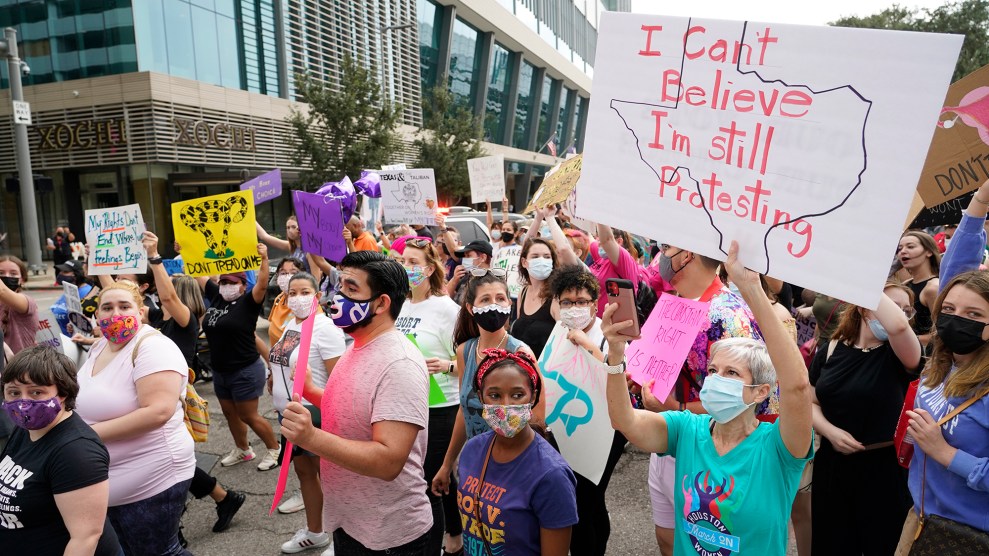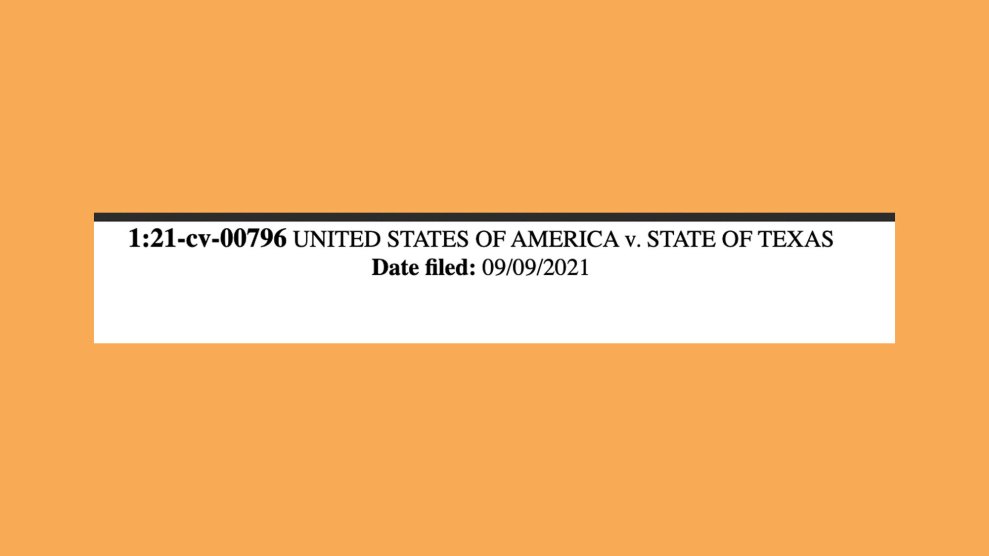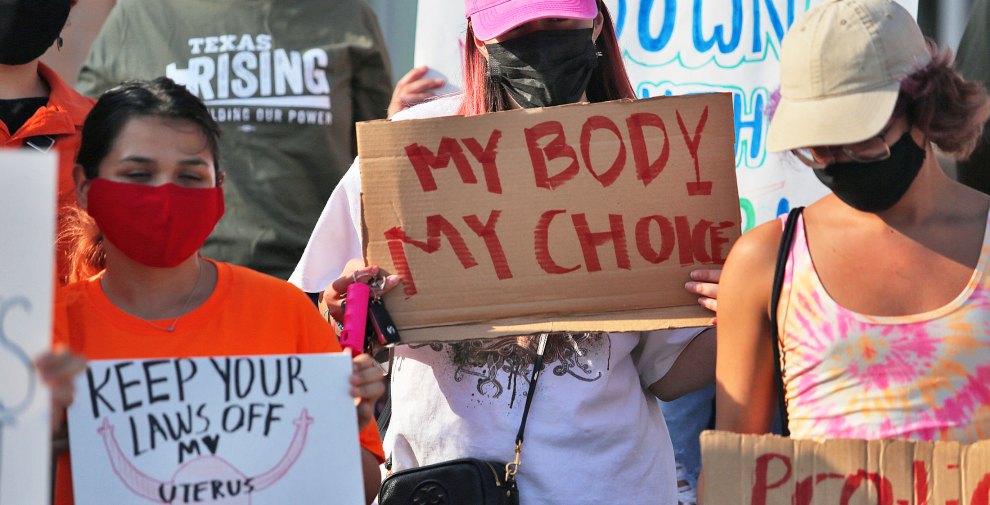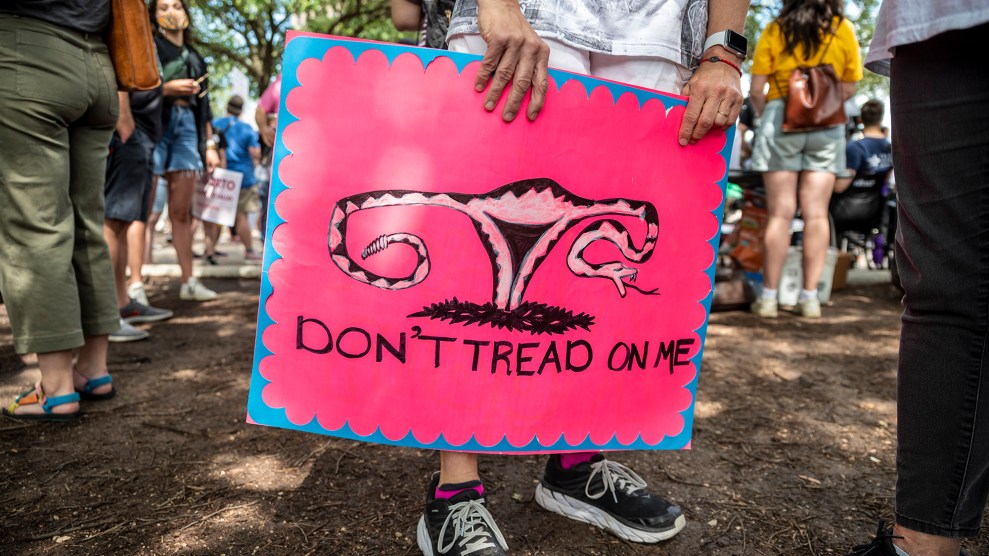
Crowds protesting Texas's abortion ban walk towards Houston's City Hall earlier this month during the nationwide Women's March event.Melissa Phillip/AP
Earlier this week, when a federal district court judge paused enforcement of Texas’ new law banning nearly all abortions, a handful of abortion clinics in the state reopened their doors to patients who had been pregnant longer than six weeks. But now, just two days later, the strict ban on most abortions in Texas is back.
On Friday night, a three-judge panel from the US Court of Appeals for the Fifth Circuit temporarily lifted the injunction on the new law—allowing it to go back into effect while the Biden administration’s legal challenge to the law continues.
Texas’ law prohibits virtually all abortions in the state by empowering any private individual to sue anyone who performs an abortion after the six-week mark—before many people know they are pregnant—as well as anyone who “aid and abets” an individual seeking an abortion. If the plaintiff wins, they can be awarded up to $10,000. There are no exceptions for rape or incest. Experts fear the court battle over the law directly threatens the constitutional right to an abortion.
The Justice Department sued Texas last month, arguing that the law was in “in open defiance of the Constitution” and asking for a temporary restraining order that would pause enforcement while the court battle plays out. On Wednesday, a lower court judge granted that request, writing in a blistering opinion that “women have been unlawfully prevented from exercising control over their own lives in ways that are protected by the Constitution.” The state of Texas appealed to the Fifth Circuit, whose judges have now put an “administrative stay” on the lower court’s decision while they consider the appeal and decide whether to keep the temporary restraining order in place.
According to the New York Times, legal experts believe the Friday night decision “sends a strong signal” that the judges of the Fifth Circuit—considered one of the most conservative federal appeals courts in the country—will ultimately decide to lift the injunction. Biden administration lawyers have until Tuesday to respond to Texas’ appeal.
While calls for the Supreme Court to resolve the situation are mounting, there’s no guarantee that the Supreme Court will decide to hear the case. Instead, the justices may opt to let the Fifth Circuit’s eventual decision stand. In December, the Court is scheduled to hear arguments in Dobbs vs. Jackson Women’s Health Org, a Mississippi case that asks the court to overturn Roe v. Wade.








